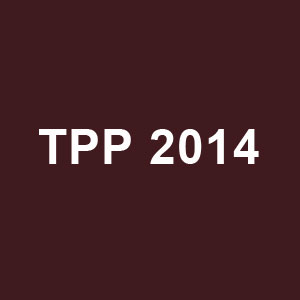“The Contemporary Quarrel Between Performance and Literature: Reflections on the Development of Performance Philosophy”
On casual reflection, the Performance Philosophy movement might be considered significant if for no other reason than it seems to announce the suturing of the rupture between philosophy and performance out of which the Western philosophical tradition emerged. For although that rupture is typically drawn between philosophy and poetry rather than between philosophy and performance (we recall the « ancient quarrel between philosophy and poetry » and Socrates’ exclusion of the poets from the polis) poetry or poiētikē, an integral part of mousikē, was entirely performative, and what Socrates objected to was a type of mimetic performativity that he deemed misleading and corrupting.
That rupture was not, of course, absolute and there are famous examples (not least in Plato’s own work) of philosophy’s reliance upon the poetic and the performative. Nevertheless, a general suspicion of these things pervades the Western philosophical canon. In the 1960s and 1970s theoretical thought from Europe, particularly French poststructuralism, building on the legacy of Nietzsche and Heidegger, actively challenged the division between literature and philosophy, but such efforts, hugely influential as they were, generally found a more welcome reception in comparative literature departments rather than in philosophy departments per se.
Now, from one perspective, Performance Philosophy might be viewed as the Anglo-American parallel of the rapprochement between philosophy and performance offered by the 60s and 70s wave of French theory. However, in this paper I will explore the possibility that Performance Philosophy in fact risks reiterating the founding gesture of Western philosophy, by establishing itself through the exclusion of literature. The implied equation between poetry and literature is, of course, far from unproblematic, but taking Derrida’s description of literature as the institution which allows everything/anything (tout dire) to be said, it will be argued that literature, in this sense, can be understood as the formal recognition of the essentially sophistic discourse that grew up around the particular form of mimetic performativity criticised by Socrates. It will be argued that what this mimetic performativity preserves, and what risks being neglected in Performance Philosophy’s efforts to bring together performance and philosophy, is the principle of fictionality, the philosophical importance of which cannot be captured in terms of « the dramatic embodiment of ideas » or « the event of thinking … inscribed in flesh and voice » etc.
Dr James Corby is a senior lecturer in the Department of English at the University of Malta. He has published widely on literature and philosophy, including articles on romanticism, modernism, phenomenology, politics, and contemporary American literature. He co-edited a volume of essays entitled Style in Theory: Between Literature and Philosophy (Bloomsbury, 2013) and he is co-General Editor of the forthcoming journal CounterText. He is currently preparing several projects for publication: a special issue of the Journal for Cultural Research called Critical Distance, and two monographs: Performance and the Literary: Ethics, Risk and Play, and The Art of Failure: Romantic and Post-Romantic Aesthetics.

